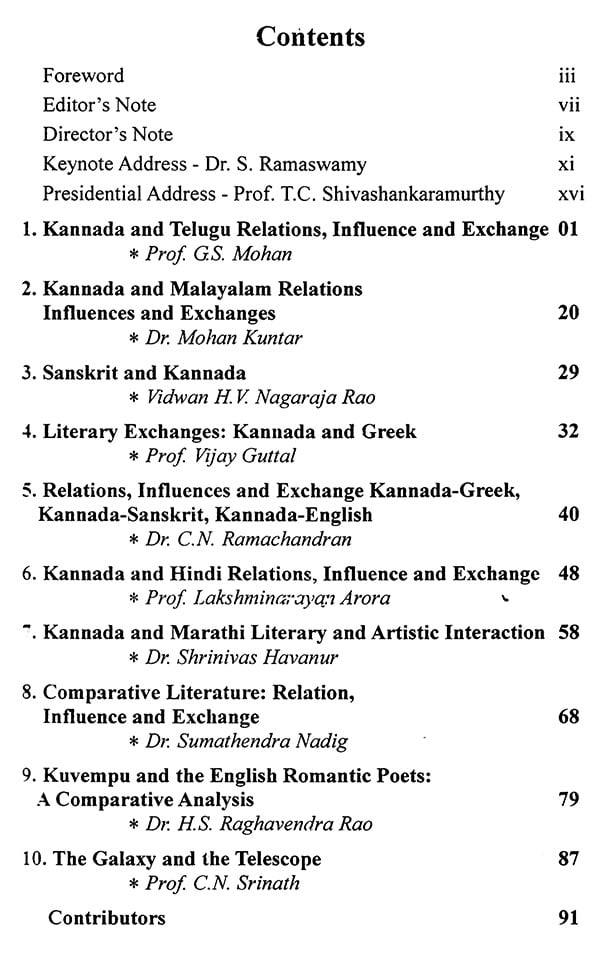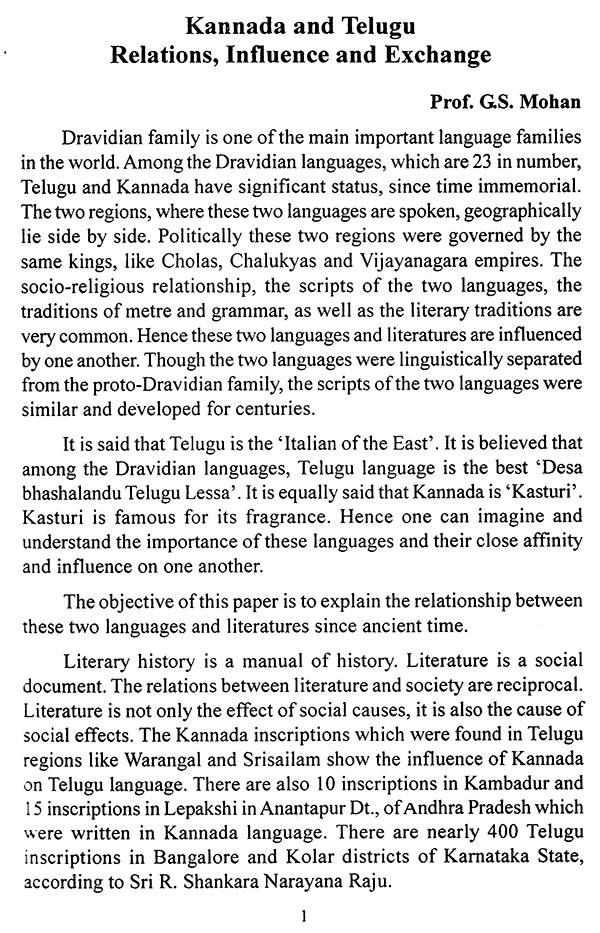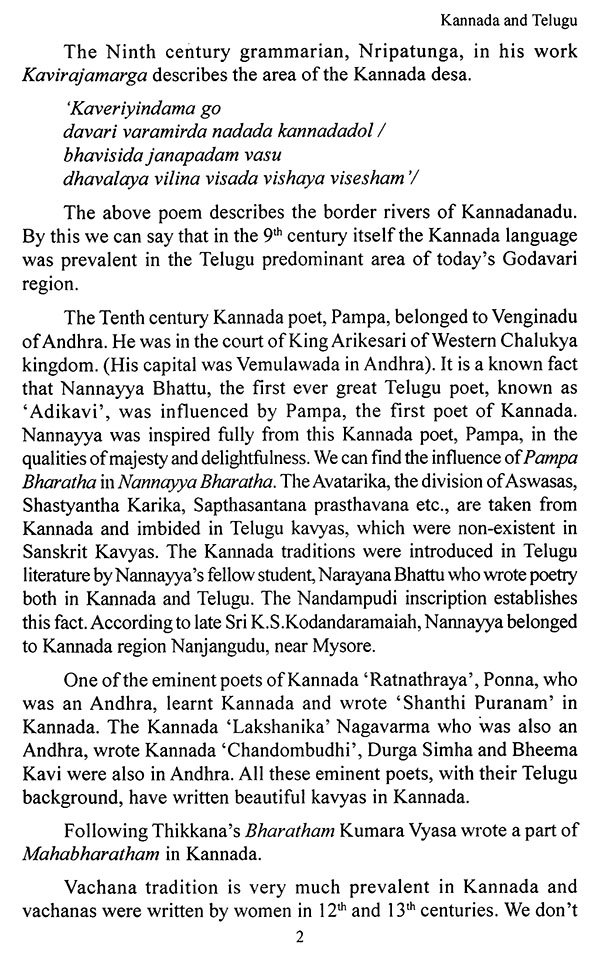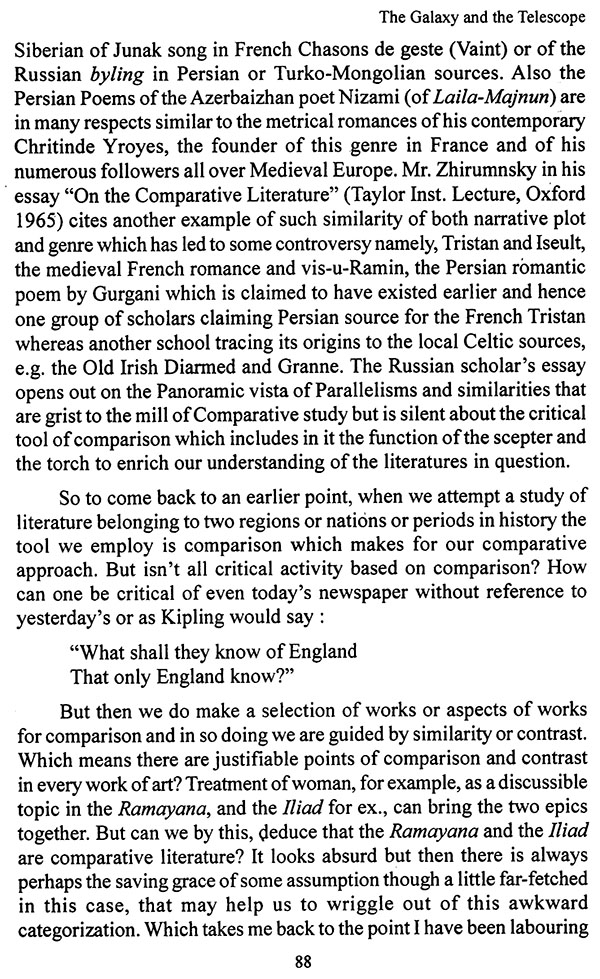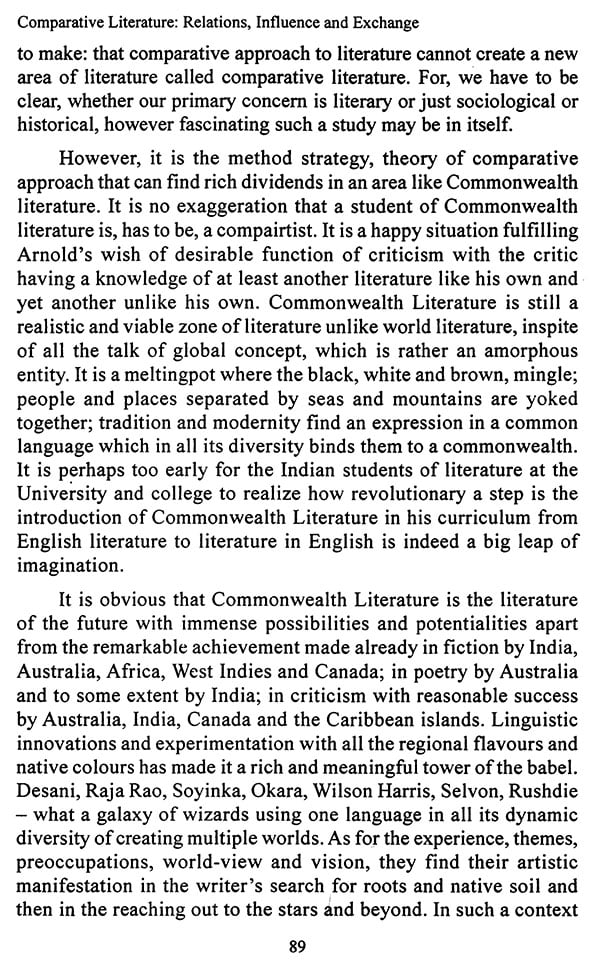
Comparative Literature (Relations, Influence and Exchange)
Book Specification
| Item Code: | NAX079 |
| Author: | K. N. Ganganaik and C. Naganna |
| Publisher: | Dravidian University Campus |
| Language: | English |
| Edition: | 2010 |
| Pages: | 92 |
| Cover: | PAPERBACK |
| Other Details | 9.00 X 6.00 inch |
| Weight | 140 gm |
Book Description
That the foundations of Indian culture were deeply embedded in Dravidian culture is now an incontrovertible fact. Dravidian culture is one of the most ancient cultures of the world. Those cultures, slightly contemporaneous to one another, slowly started fading out. However, the primordial Dravidian culture continues to thrive without losing its quintessence despite the apparent changes in systems of dress and address.
Dravidian University was established in 1997 to mirror the real and rich picture of Dravidian culture not only in its linguistic, literary, cultural and philosophical facets but in science and technological angles also.
The main objectives of Dravidian University are to augment the common weal and social well being of the communities of marginal languages and to build bridges among the Southern states. While working on each language separately in varied areas, it aims at a synthesis and a discovery of the common heritage through Comparative Studies.
Prasaranga (Publications wing) and Anusrjana (Translation Bureau) are the two most significant wings of the University embarking on several on going progressive activities. )
As far as I know comparative literature endeavors, in the first place to discover general laws which transcend any one literature, such as the development of types and forms under the progressive relationships of different literatures. In the second place it seeks to reveal relations of affinity within two or more literatures. Finally, through the discovery of similarities and differences by means of comparison. After reading these papers presented at the National Seminar organized by Kuvempu Institute of Kannada Studies, University of Mysore in collaboration with Dravidian University, I strongly feel that the paper presenters did their best to articulate the spirit of comparative literature and voiced the immediate concerns of the discipline. Another remarkable aspect of these papers is that all the papers, instead of ruminating on certain abstract issues, focused on the pestering issues related to Indian, specifically South Indian literature and culture. It is heartening to note there are papers on Kannada and Telugu, Kannada and Malayalam and even on Kannada and Greek literatures and languages. Seminars of this type will help to recollect the common heritage of the people residing in different regions. One of the interesting features of these papers is that they contain discussions related to the influence and exchange between Kannada-Hindi, Kannada-Bengali and Kannada-Marathi literatures and languages. The scholars analyzed numerous issues that are quite interesting in the discipline, Comparative Literature. This anthology of essays will certainly help in furthering the scholarship in Comparative studies. Hence, I whole-heartedly congratulate the organizers of the seminar and the paper presenters and the Editor of this volume.
